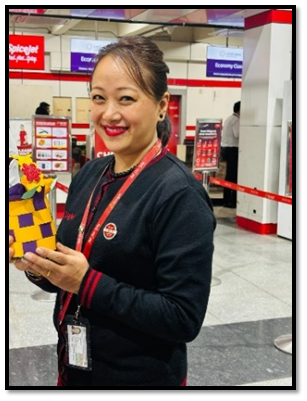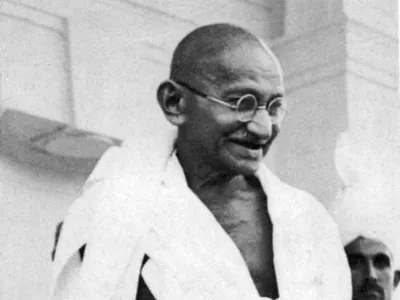Diwali: The Festival of Lights and Its Cultural Significance
Diwali, also known as Deepavali, is one of the most widely celebrated and cherished festivals in India. Known as the “Festival of Lights,” Diwali is a time of joy, family reunions, and vibrant festivities that illuminate the lives of millions. With its deep roots in Hindu religion and its significance across various communities, Diwali offers a message of hope, triumph, and renewal.
Diwali’s origins are deeply intertwined with ancient Hindu legendary. The festival celebrates several significant events, but it is primarily associated with the victory of good over evil. Here are a few key stories linked to Diwali:
The Return of Lord Rama: One of the most popular legends associated with Diwali is the return of Lord Rama to Ayodhya after his victory over the demon king Ravana, as narrated in the epic Ramayana. Rama, along with his wife Goddess Sita and brother Lakshmana, was welcomed back to Ayodhya with rows of oil lamps, which is commemorated today as the lighting of diyas (small oil lamps) during Diwali.
The Birth of Goddess Lakshmi: Diwali is also associated with the Goddess Lakshmi, the goddess of wealth and prosperity. According to tradition, Lakshmi emerged from the ocean during the churning of the ocean (Samudra Manthan) on the new moon day of Diwali. Devotees worship Lakshmi to invite her blessings into their homes and businesses.
The Defeat of Narakasura: Another legend celebrates the defeat of the demon Narakasura by Lord Krishna. This victory is celebrated on the day known as Naraka Chaturdashi or Choti Diwali, marking the day when Lord Krishna freed the world from the demon’s tyranny.
Diwali is celebrated with great enthusiasm across India, each region adding its unique flavor to the festivities:
Northern India: In northern states like Uttar Pradesh, Punjab, and Delhi, Diwali is marked by grand celebrations including the lighting of lamps and fireworks. People clean and decorate their homes with rangoli (colorful patterns made on the floor), and family gatherings are a central part of the festival. The night sky is lit up with spectacular firework displays, and sweets and traditional dishes are prepared to celebrate the occasion.
Western India: In Gujarat and Maharashtra, Diwali is celebrated with a focus on the worship of Goddess Lakshmi and Lord Ganesha. The festival kicks off with Dhanteras, a day dedicated to purchasing new items and gold. The celebrations continue with vibrant dances, such as Garba, and festive markets.
Southern India: In Tamil Nadu and Karnataka, Diwali is celebrated as Deepavali, with a focus on the triumph of good over evil. The festival includes special prayers, feasts, and the lighting of lamps. Fireworks and the preparation of traditional sweets and savory snacks are integral to the celebrations.
Eastern India: In West Bengal and Odisha, Diwali coincides with the celebration of Kali Puja. The festival includes worship of Goddess Kali, and the night is filled with the sound of fireworks and the lighting of lamps. Special rituals and processions are conducted, and traditional sweets are enjoyed.
Diwali holds profound cultural and spiritual significance in India. It represents the victory of light over darkness and knowledge over ignorance. The festival encourages people to overcome obstacles and start anew with hope and optimism.
1. A Time for Reunion: Diwali is a time when families come together to celebrate and strengthen their bonds. The festival fosters unity and encourages the sharing of joy, love, and prosperity among relatives and friends.
2. A Symbol of Renewal: Diwali is an opportunity for people to clean and decorate their homes, symbolizing the removal of negativity and the welcoming of positivity. It is a time to begin new ventures and set positive intentions for the coming year.
3. A Celebration of Tradition: Diwali reinforces cultural traditions through rituals, storytelling, and the practice of ancient customs. It serves as a means of passing down cultural heritage and values to future generations.
4. A Festival of Generosity: The spirit of giving is central to Diwali. People exchange gifts, sweets, and greetings, fostering a sense of community and compassion. It is a time to reach out to those in need and spread joy and kindness.
The essence of Diwali lies in its message of hope, renewal, and the triumph of good over evil. It reminds us to embrace light and positivity in our lives, to overcome challenges with strength and perseverance, and to celebrate the richness of our cultural heritage. Diwali encourages us to share our happiness with others and to foster a sense of unity and compassion in our communities.Diwali is more than just a festival of lights; it is a celebration of life is enduring values and the beauty of human connection. As families and communities come together to illuminate their homes and hearts, Diwali stands as a beacon of hope, joy, and cultural pride, enriching the lives of those who partake in its vibrant and meaningful traditions.
By: Ms. Ramona Rai (Duty Officer – Bagdogra)



